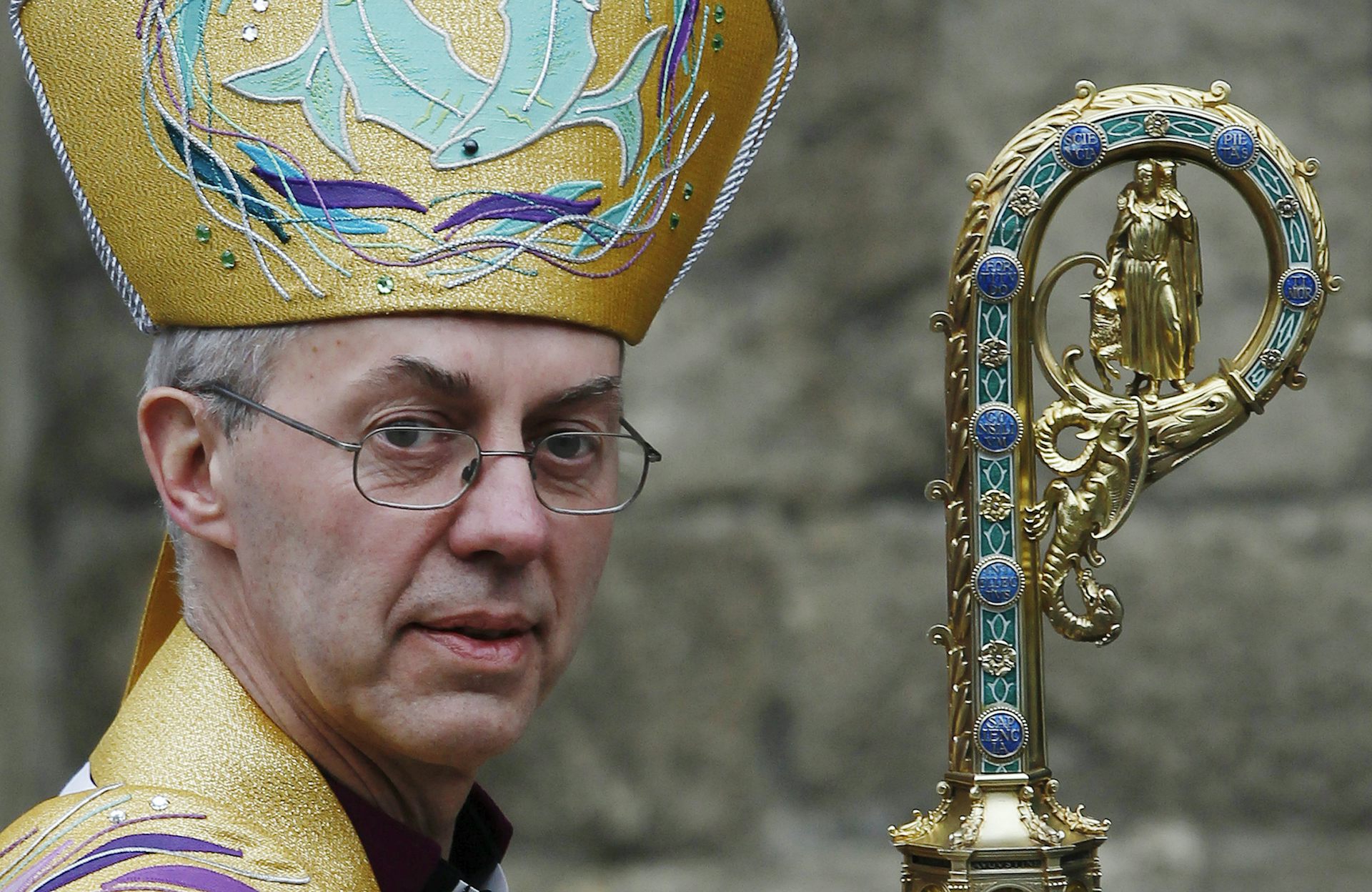
Author
Lecturer in the department of Politics, Philosophy and Religion, Lancaster University
Disclosure statement
Anderson Jeremiah is an ordained Anglican Priest.
Partners
Kailyn and Vee take a look back at their rocky relationship over the years and reveal they're closer than ever. The Teen Mom 2 Reunion continues next Monday ...
WE RECOMMEND THE VIDEO: Kailyn & Vee’s Friendship | Teen Mom 2 | MTV
Lancaster University provides funding as a founding partner of The Conversation UK.
The Conversation UK receives funding from these organisations
- Email
- Twitter
- Facebook
- LinkedIn
- WhatsApp
- Messenger
The 38 primates of the Anglican Communion are meeting for the first time under the leadership of Justin Welby, the archbishop of Canterbury. But how long it lasts is anybody’s guess.
The communion is a collective of independent churches across the globe that share the Anglican history, doctrine and faith. It has been predicted that the group will disintegrate over differing views on homosexuality, particularly led by the conservative groups that oppose the imposition of liberal practices on this issue within the Anglican Communion.
Truth be told, primates never gather without there being predictions of a schism. That exactly captures the nature of the communion. As a group, it is made up of very different communities, underpinned by their colonial history and cultural practices. It is very much still evolving.
However, the issue tearing the primates apart at the moment is certainly a complex one. The Anglican Communion has, in the past, survived many difficult and polarising issues, from slavery to racism, to ordaining women to ministry. But the matter of sexuality, and the strong views expressed on either side of the debate, seem to have derailed the communion even before it began.
African challenge
In addressing this argument, the West – and particularly the Church of England – needs to accept that the Anglican Communion is the vestige of a colonial era. Many feel that the see of Canterbury doesn’t have the moral authority to dictate terms to the global church.
The majority of Anglicans live in the global south, where the issue of sexuality is mixed up with ethnic tribal, and cultural factors, further complicated by the fierce politicisation of religious belonging.
Although the attitudes of many Anglicans towards sexuality can be traced back to the pietistic missionaries who brought the faith to other countries, other factors, such as local religious practices and cultural norms have also contributed to the skewed understanding often seen in Africa and Asia.
 Justin Welby has a war on his hands. Reuters/Luke MacGregor
Justin Welby has a war on his hands. Reuters/Luke MacGregor
The six primates opposing a more liberal stand on sexuality – all of whom represent African provinces – are not only challenging the moral authority of the Archbishop, but the power of the west to determine their doctrinal position. This is at the heart of the disagreement. Their question is should Anglicans in Africa listen to their erstwhile white masters?
And it is not solely an African issue.
The founding principles of the Anglican Communion allowed different doctrinal positions to flourish together, side by side. That’s because the very nature of Anglican Communion stems from a very diverse missionary history in different parts of the world that hardly had any doctrinal uniformity.
By pushing for a decision on a complex issue such as sexuality, the current leadership has decided the future of the communion even before it begins, and the result could be counterproductive to the LGBTI community within these churches.
Changing communion
But while the communion may disintegrate as predicted, something more diverse could evolve in its place. Rather than disappearing altogether as a global church, it might simply be that the group will no longer be led out of an HQ in South London.
Welby announced in September, after visiting all 38 Anglican provinces, that a looser cooperation would better suit the church than a formal communion. His proposal being that churches will still be linked to Canterbury but not to each other.
Unlike his predecessors as leader, Welby has said that he does not see any future in the current dysfunctional communion and appears resigned to the idea of a looser grouping that doesn’t share the same doctrine.
It seems that he wasn’t willing to do the hard work of living with and bringing together people of different doctrinal positions. In taking this stance, he has only given more room for the hardliners who oppose same sex marriage to argue that there is no space for conservative views within the Anglican Communion.
His predecessors, keeping in line with tradition and through patient listening, facilitated a process of conversation and disagreement about difficult subjects rather than deciding on the rights and wrongs of a particular issue.
The primates from the six provinces may have their differences but are willing participants of the conversation. It is the task of the leaders to keep them engaged until there is a better understanding of the issue itself, rather than calling on everybody to abandon ship.
The leadership of the communion could use this opportune time to initiate a global, grassroots conversation on human sexuality instead of focusing on the disagreements of the leaders.
This issue has exposed the double standards of the Church of England when it comes to the treatment of LGTBI people. Only recently, more than 100 senior members of the church wrote an open letter to archbishops, calling on them to repent for their failure to protect the LGTBI community. They failed to do so.
Many in the Church of England continue to oppose same-sex marriage. Given this division, and Welby’s failure to take decisive action on the matter, it’s baffling that he has allowed sexuality to be the central focus of the primates’ meeting, instead of initiating a respectful debate on such an important issue.
Thursday, 15 October 2020